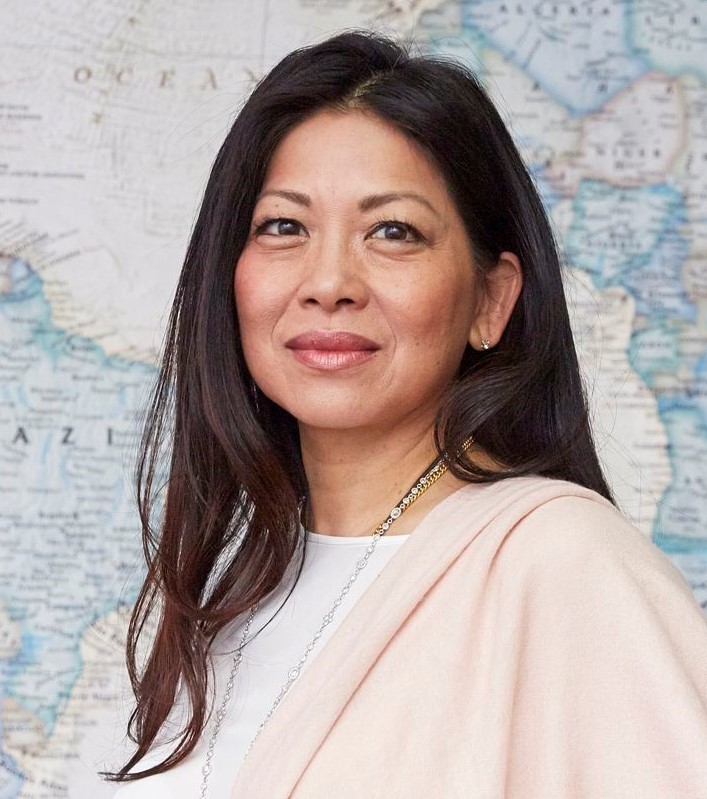
A Vision of Dignity: How Karen Tse Is Working to End Torture Worldwide
Building Bridges to Justice, One Defender at a Time
 From the moment she looked across prison bars in Cambodia and locked eyes with a young, battered boy, Karen Tse knew her mission was greater than herself. That encounter – the boy had stolen a bicycle – and a later one with Vishna, a child born in prison and treated as if invisible, inspired her to found International Bridges to Justice (IBJ) in 2000. With its creation came a bold commitment: to end torture as an investigative tool through ensuring access to legal defense for everyone.
From the moment she looked across prison bars in Cambodia and locked eyes with a young, battered boy, Karen Tse knew her mission was greater than herself. That encounter – the boy had stolen a bicycle – and a later one with Vishna, a child born in prison and treated as if invisible, inspired her to found International Bridges to Justice (IBJ) in 2000. With its creation came a bold commitment: to end torture as an investigative tool through ensuring access to legal defense for everyone.
From Public Defender to Global Change-Maker
Karen’s path to human rights advocacy came through a dual calling. She holds a law degree from UCLA and a master’s in divinity from Harvard, and she is an ordained Unitarian Universalist minister. Early in her career, she served as a public defender in San Francisco, a role in which she saw firsthand how power imbalances, poverty, and lack of legal support can lead to injustice.
But it was her work abroad that sharpened her resolve. In the 1994, she moved to Cambodia to mentor public defenders and strengthen court institutions. There, she encountered prisoners held indefinitely without trial, often coerced into confessions under torture. Recognizing that poor procedural protections were not just failures of policy but wounds to dignity, she resolved to build a new system rooted in respect and justice.
A Systemic Approach, Rooted in Hope
What makes IBJ exceptional is that it addresses both the individual and the systemic. It does not simply litigate high-profile cases or campaign from afar; it supports defenders, works with governments, and helps build infrastructures that safeguard rights from the ground up.
IBJ’s mission rests on four pillars:
- Training and supporting defenders in criminal procedure and human rights norms.
- Promoting early access to counsel, so that a person is not left vulnerable to mistreatment before legal help arrives.
- Engaging with the broader justice system – police, prosecutors, judges – to build a culture that respects defense rights rather than viewing those actors as mere adversaries.
- Leveraging technology, data, and international coordination to support local defender communities and reinforce reform.
Through these strategies, IBJ seeks to shift the “baseline” of justice systems so that torture, coercion, and wrongful detention become anomalies rather than tolerated norms.
Reaching Far and Wide: Impact You Can Count
Under Karen’s leadership, over the years IBJ has worked in over 50 countries. It has:
- Trained over 40,000 lawyers and defenders who have represented at least 500,000 detainees;
- Reached more than 70 million people through rights awareness campaigns and online platforms, including e-learning modules and a global Criminal Defense Wiki (an online workspace that allows law students, professors, and seasoned defense lawyers to build an online knowledge hub supporting criminal defense work worldwide);
- Won governments’ cooperation to implement IBJ’s model nationally, signaling that justice reform is not just a foreign ideal but a local possibility.
Perhaps most importantly, IBJ emphasizes that real success means becoming unnecessary: local defender communities should ultimately take over, embedding fairness and rights into their own justice systems.
A Belief in What’s Possible
Karen Tse has declared: “I believe it is possible to end torture in my lifetime.” That belief isn’t wishful thinking. It guides an approach built on humility, collaboration, and moral clarity. She insists IBJ’s work must be rooted in hope, not anger, and that transformation comes not from shaming alone but from building bridges to systems that can change from within.
For those of us looking outward at a turbulent world, Karen’s mission offers a powerful reminder: even the gravest suppression can be challenged by people committed to dignity, connection, and justice. Her work inspires not only optimism about what’s possible but resolve to act.
If you’re curious to learn more, Karen’s TED talk “How to Stop Torture” is well worth watching.


What an inspiration for all!